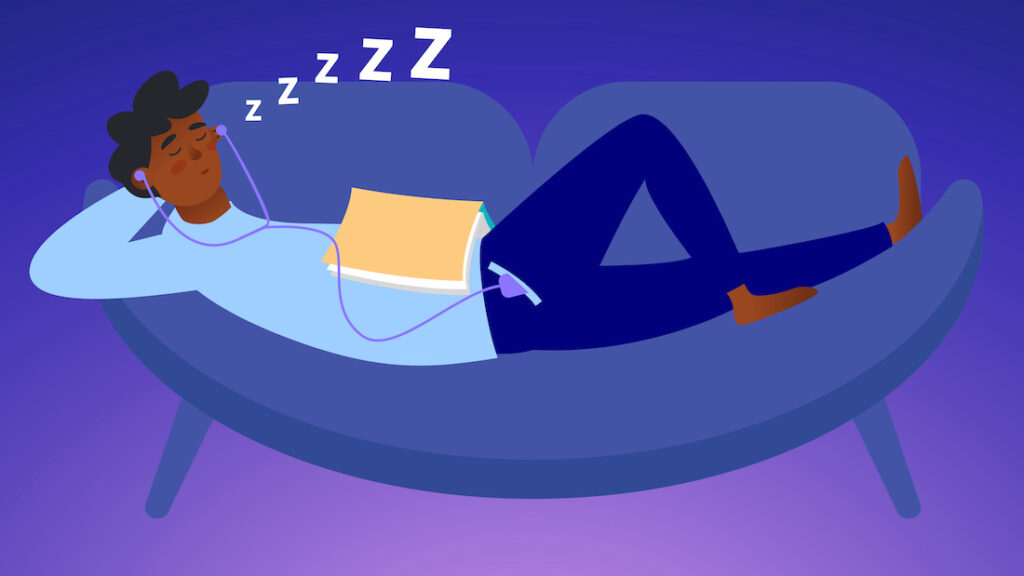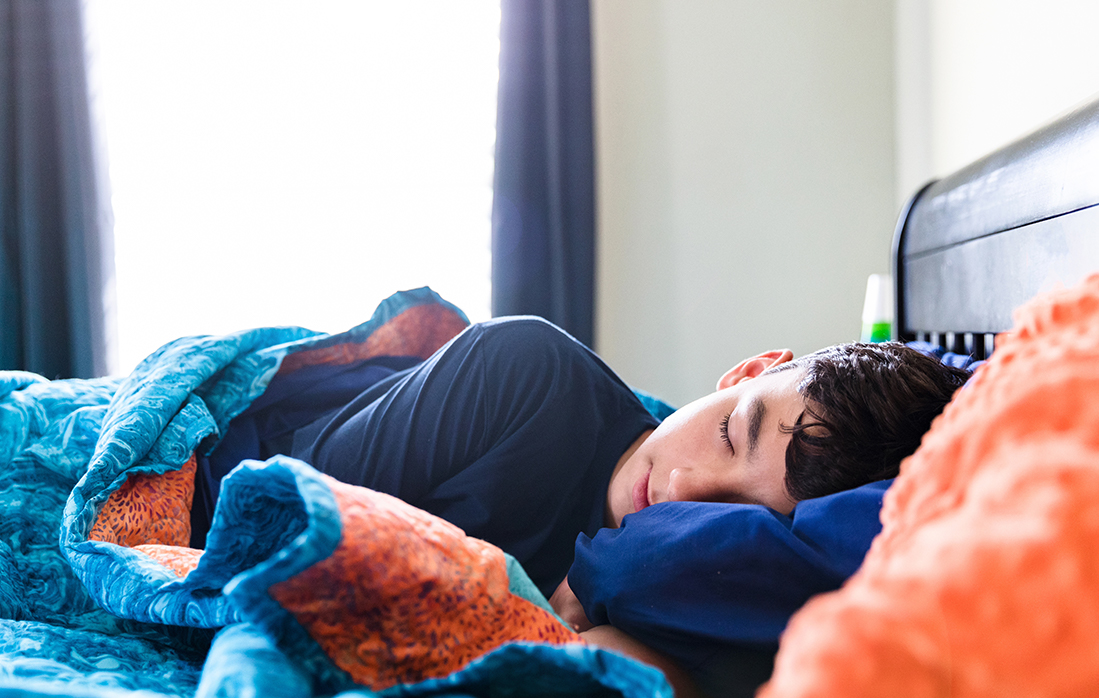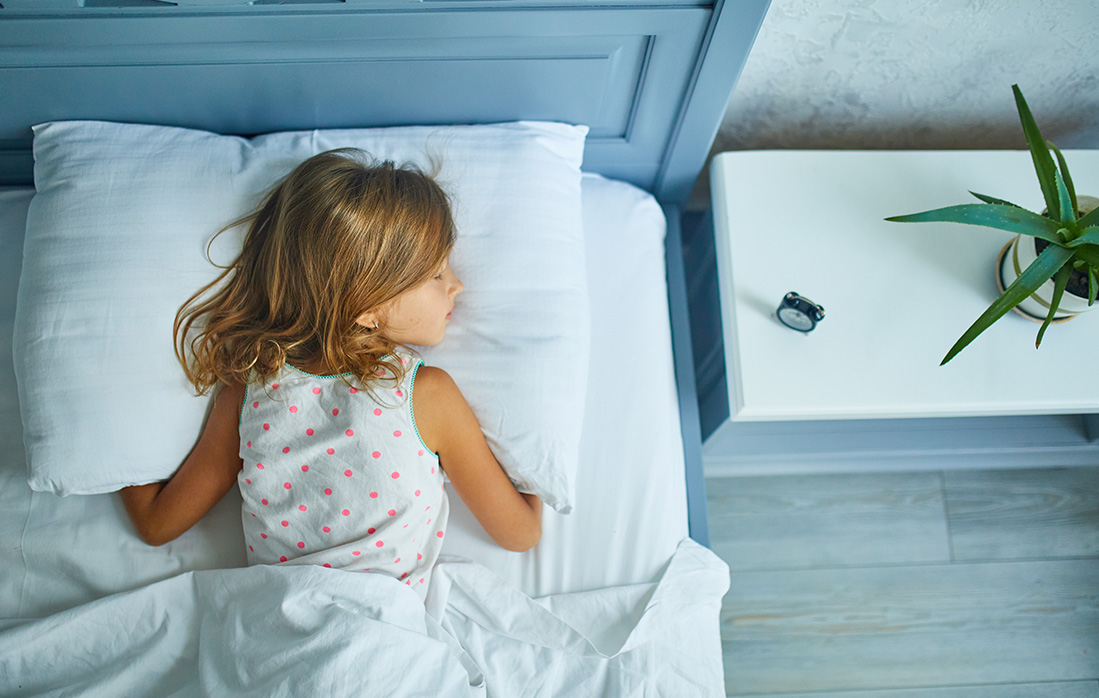
Sleep plays a key role in physical, emotional, and cognitive functioning. And while it’s vital across all life stages, getting enough sleep is crucial for teenagers. We all know that the teen years are a time of exponential physical, emotional, and cognitive growth. But when you pair that with their ever-increasing social and academic obligations, you have a recipe for disaster.
All said, teens need plenty of shuteye, but both parents and teens find it much easier said than done.
A common misconception is that teens need less sleep or they’re capable of getting by with less sleep simply because they’re teenagers with youth on their side. But that’s not entirely true. While The American Academy of Sleep Medicine AASM recommends 8 to 10 hours of sleep for teens per day, yet, study after study has shown that teens consistently fall short. (1) (2) (3) As Dr. Shelby Harris, Sleepopolis’s Director of Sleep Health, says about her clientele in a recent episode of Sleep Talking With Dr. Shelby, “I have a lot of teens who need nine, nine and a half hours and they’re not even getting close to that. When people hear eight, they laugh.”
And while we can venture to guess, the one-two punch of biological and lifestyle factors is to blame. In a recent survey of 300 young adults aged 18-21, Sleepopolis pulled the covers back on their sleep habits and what’s keeping them up at night.
Teens, Sleep, and Biology
Before we dive in, it may be worth noting that teens often experience a shift in their circadian rhythm when they round the corner of puberty. So, while parents mistakenly think their kids miraculously turn into night owls when they hit middle or high school, the truth is it’s not necessarily their choice. Teenage circadian rhythms can shift later, sometimes by as much as 2 to 3 hours. (4) The result is the textbook night owl teen who stays up later and sleeps well into the morning if the alarm doesn’t sound for school.
Digging just a bit deeper, we find that teen sleep drives tend to build more slowly. (5) So in the evening hours, when their parents are winding down, teens tend to be more alert. And then you have the fact that the teenage brain flips the melatonin switch later as well. In the absence (or delay) of the sleep hormone, teens just aren’t sleepy. (4)
What’s Keeping Teens Up At Night?
Aside from biology and lifestyle factors, our survey found that teens aren’t sleeping at night because they worry about everything from their future to climate change.
Pressure
Topping their list of worries, a whopping 233 of the respondents, or 77.67 percent of teens, said they were worried about their future. And anyone on the other side of it is likely to understand. As teens move closer and closer to leaving the comforts of home and facing the world on their own, the future can be a scary prospect. Pair that with the ever-increasing pressure to have it all figured out, trying to understand their place in the world and everything that comes with adulting; it’s not that hard to see why they’re losing sleep over it all.
Relationships
Social pressures ranked high on the list of teen concerns, right up there behind fears of the future. Of the 300 teens surveyed, 190, or 63.3 percent, indicated that friendships and relationships were regular causes for concern.
Stable friendships are linked with psychological well-being during adolescence and as teens move into adulthood. (6) But the absence of solid friendships and the ups and downs that come with them can put a lot of pressure on teens.
Money
Worries over money tie friendships and relationships for second place in our survey of what keeps teens up at night. More specifically, 190 teens, or 63.3 percent, said they worry about money issues before bed.
While plenty of teens live securely under the roof (and bank) of mom and dad, money worries could be a hard one for parents to wrap their heads around, but it’s a genuine concern for our kids. The thing to remember here is that as much as we think teens are only focused on themselves, make no mistake; they’re paying attention to what’s going in around them. No doubt, talk of increasing inflation, house prices, and lower unemployment is taking its toll.
Other issues keeping teens up at night:
- Schoolwork 46.7 percent
- Family issues 45.3 percent
- Health issues 38.7 percent
- News and/or politics 17.7 percent
- The environment and climate change 15.3 percent
What Are Teens Doing When They Can’t Sleep
There’s no surprise here; our survey revealed that teens are doing what teens do — 65.3 percent said they spend their time before bed watching TV or movies, 59 percent said they text or chat with friends, and 82.3 percent said they check social media.
We’ll add here that while social media can help teens stay connected, it doesn’t come without its downsides. Our survey found that 82 percent of teens regularly checked their social media before bed. And while it may seem harmless, studies have shown that social media can have a detrimental impact on teen brain development. While it heightens their sensitivity to social feedback and threatens their mental health, leaving them vulnerable to depression, anxiety, and suicidality, there’s an abundance of research showing that social media is a huge sleep disruptor for teens. (7)
One study from the University of Pittsburgh in 2015 showed that adolescents who frequently checked their social media were more likely to suffer sleep disturbances than teens who engaged sparingly. (8) Another study in 2021 showed that frequent social media use in adolescents not only leads to bedtime delays but also meddles with their sleep quality and duration. (9)
And, let’s keep in mind that just as positive socializing can keep teens up, so too can the goings-on at the other end of the spectrum, including bullying, peer pressure, and everyone’s favorite, the comparison trap. (10)
How Does Insufficient Sleep Affect Teens?
Our survey showed that insufficient sleep has some pretty far-reaching effects on teens, and it’s affecting them both academically and socially.
Regarding school and homework, 18.4 percent reported being too tired to finish their homework on time, 14.2 percent said they’ve fallen asleep while doing homework or at work, 16.8 percent said they’ve fallen asleep in class, and 21.6 percent reported being too tired to go to school or work.
Socially, 25 percent of our teen respondents said they’ve been too tired to hang out with friends.
What Coping Mechanisms Are Teens Using To Get Some Sleep
While 31.3 percent of teens reported doing nothing to improve their sleep, 53 percent indicated they’ve used melatonin supplements and/or gummies, 22.3 percent reported using marijuana, and 22.3 percent said they’ve tried weighted blankets or snuggled with a toy.
How To Tell If Your Teen Is Sleep Deprived
“If our sleep needs are being met, we usually wake spontaneously in the morning without much need for an alarm,” says Dr. Lynelle Schneeberg, PsyD, Assistant Professor at Yale School of Medicine and Director of the Behavioral Sleep Program at Connecticut Children’s Medical Center. “This is rare for a teenager, however, because they often do not get sleepy until later in the evening due to the delayed release of melatonin common in adolescence.”
Ultimately, Schneeberg says, parents may need to do some detective work to determine if their teen is falling short on their sleep needs.
- Is the teen extremely hard to wake up in the morning?
- Is the teen irritable in the morning?
- Napping after school?
- Doing worse academically than they have been?
- Sleeping in much, much later on weekends than on school days?
If the answer to any of these questions is “yes,” it’s likely that “your teens’ sleep needs are not being met,” says Schneeberg.
Unfortunately, though, sleep deprivation goes far beyond feeling tired. A persistent lack of sleep opens teens up to a whole host of issues, including:
- Irritability
- Poor impulse control
- A lack of focus
- Poor grades/academic performance
- Anxiety
- Depression
- Drowsy-driving incidents
How to Help Teenagers Get More Sleep
Mind their sleep hygiene
Good sleep hygiene can go a long way towards helping your teen enough shuteye. While bedtimes may be later, there’s nothing to say they can’t be consistent. “Rise times should stay consistently within a 2-3 hour range,” adds Shcheeberg.
For additional sleep hygiene clampdowns, Shcheeberg suggests “Eliminating electronic use after lights out” (parents should try to steer their teens toward reading, drawing, or anything that doesn’t require charging) and dividing their bedroom into three distinct “zones.” She notes that teens often use their beds for everything from studying to sleep, so the lines are blurred when it’s time for some shuteye. Ideally, teens should consider reserving one space for studying, one for relaxing, and one for sleep. This allows their brain to connect their bed only with sleep, not the stress of schoolwork and whatever else they worry about (see above).
And finally, she reminds us of some basic sleep hygiene rules — keep their room quiet, cool, and dark.
Mind Overscheduling
Overscheduling has become the norm for many parents and teens, but parents may want to reconsider when a full calendar comes at the cost of a good night’s sleep. Whether it’s playing soccer, playing softball, or playing in the school band, we know kids want to do it all. The problem arises when we add in the fact that there are only so many hours in the day for them to accomplish all of the above. And, like most people, sleep usually makes the first cut when something’s gotta give.
Be the example
When parents model poor sleep hygiene, their kids are sure to follow. If you want your teen to trade in their devices for a good night’s sleep, you might consider doing the same.

Are Extracurriculars to Blame For Kids’ Poor Sleep Schedules? Parents Seem to Think So

Everything to Know About Montessori Beds, the Potentially Perfect Rising Trend for Kids and Parents Alike

Almost Half of Parents Have Given Their Children Melatonin to Sleep, New Survey Shows

All the Conflicting Information About Melatonin and Kids
Sources
1. Sleep faqs – sleep education by the AASM. Sleep Education. (2021, May 4). https://sleepeducation.org/sleep-faqs/
2. Bruce ES, Lunt L, McDonagh JE. Sleep in adolescents and young adults. Clin Med (Lond). 2017;17(5):424-428. doi:10.7861/clinmedicine.17-5-424
3. Centers for Disease Control and Prevention. (n.d.). Preventing chronic disease. Centers for Disease Control and Prevention. https://www.cdc.gov/pcd/issues/2014/14_0383.htm
4. National Research Council (US) and Institute of Medicine (US) Forum on Adolescence; Graham MG, editor. Sleep Needs, Patterns, and Difficulties of Adolescents: Summary of a Workshop. Washington (DC): National Academies Press (US); 2000. ADOLESCENT SLEEP PATTERNS AND DAYTIME SLEEPINESS. Available from: https://www.ncbi.nlm.nih.gov/books/NBK222804/
5. News Center. (2015, October 8). Among teens, sleep deprivation an epidemic. News Center. https://med.stanford.edu/news/all-news/2015/10/among-teens-sleep-deprivation-an-epidemic.html
6. Güroğlu, B. (2022). The power of friendship: The developmental significance of friendships from a neuroscience perspective. Child Development Perspectives, 16, 110–117. https://doi.org/10.1111/cdep.12450
7. Maza MT, Fox KA, Kwon S, et al. Association of Habitual Checking Behaviors on Social Media With Longitudinal Functional Brain Development. JAMA Pediatr. 2024;177(2):160–167. doi:10.1001/jamapediatrics.2022.4924
8. Jessica C. Levenson a, a, b, c, AbstractIntroductionMany factors contribute to sleep disturbance among young adults. Social media (SM) use is increasing rapidly, Arora, T., Cain, N., Grandner, M. A., Hale, L., Hirshkowitz, M., Kaplan, A. M., Liu, X., An, J., Arnett, J. J., Baker, R., Banks, S., Buysse, D. J., Chang, A. M., Duggan, M., … Gradisar, M. (2016, January 11). The association between social media use and sleep disturbance among young adults. Preventive Medicine. https://www.sciencedirect.com/science/article/abs/pii/S0091743516000025
9. van den Eijnden RJJM, Geurts SM, Ter Bogt TFM, van der Rijst VG, Koning IM. Social Media Use and Adolescents’ Sleep: A Longitudinal Study on the Protective Role of Parental Rules Regarding Internet Use before Sleep. Int J Environ Res Public Health. 2021;18(3):1346. Published 2021 Feb 2. doi:10.3390/ijerph18031346
10. Riehm KE, Feder KA, Tormohlen KN, et al. Associations Between Time Spent Using Social Media and Internalizing and Externalizing Problems Among US Youth. JAMA Psychiatry. 2019;76(12):1266–1273. doi:10.1001/jamapsychiatry.2019.2325
11. Dr. Lynelle Schneeberg, PsyD. Email Communication. August 16, 2024.



























